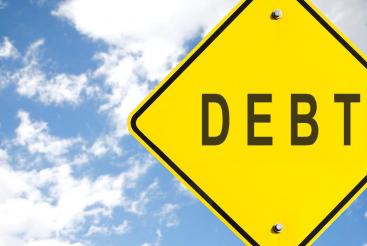How your monthly repayments matter to your credit file

When it comes to knowing what goes into your credit history, many Australians may not even be aware that they have a credit history to begin with. In fact, according to Equifax, 78 per cent of us haven't thought to, or dared to check our credit history1.
Your credit history is recorded in your consumer credit file and it isn't as scary as you might think.
How do I know if I have a credit history?
You are likely to have a credit history if you have applied for credit, which has then been recorded on your credit report as a credit enquiry. This doesn't only take the form of a bank loan or mortgage. Utility providers such as gas, electricity and satellite TV as well as mobile phone companies are all credit providers.
However, you can't know for sure whether you indeed do have an Equifax credit report, or what it could contain, until you request a copy of your Equifax credit report.
It's important to keep track of your Equifax credit report, as if you apply for any type of credit in the future, it is what credit providers may reference in the process of making their decision.
This was made even more pertinent with the changes to the credit reporting system in March 2014, whereby new information can now be included on your credit file if reported by the credit provider, such as monthly repayments on credit accounts like personal loans, mortgages and your credit card minimum balance.
How do monthly repayments affect my credit file?
The new comprehensive credit reporting (CCR) system is beneficial to consumers as it can record 'good credit behaviour' on your credit report, like making monthly repayments on time, rather than solely 'negative' events.
CCR gives consumers the chance to redeem themselves in the eyes of credit providers as this 'good credit behaviour' can now be recorded along with the not-so-good.
This is good news for consumers as it can result in a faster recovery from difficult periods which may have reflected negatively on your credit report. For example by turning over a new leaf and beginning to consistently make your payments on time, you can work towards countering an old default.
By keeping on top of your monthly repayments, those new to consumer credit can also begin to build a strong credit report quickly without necessarily having many different loans or credit cards.
The best way of starting out is to get a copy of your Equifax credit report. Check the information listed on your Equifax credit report is correct. You can also keep updated with credit alert services with a subscription package which will send you email updates each time certain changes are made to your Equifax credit report.
Disclaimer: The information contained in this article is general in nature and does not take into account your personal objectives, financial situation or needs. Therefore, you should consider whether the information is appropriate to your circumstance before acting on it, and where appropriate, seek professional advice from a finance professional such as an adviser.
1Equifax, Equifax Australian Credit Scorecard. October 2014.
Get your Equifax credit report for FREE today
Learn moreYou might also like

Making your repayments on time
While the idea of putting through payments each month might not seem like such a big deal, credit can become a burden should you begin to fall behind.

3 myths about your credit report
There are many mysteries surrounding what affects your credit score. Take a look at these three commonly believed myths that could catch you out.

How can I improve my credit record?
For anyone juggling payments and bills from various essential service providers, from electricity and phone connections to rent or a mortgage, getting on top of their credit score may feel like a looming goal. However, with a few changes, you can begin to repair an unfavourable credit report.
